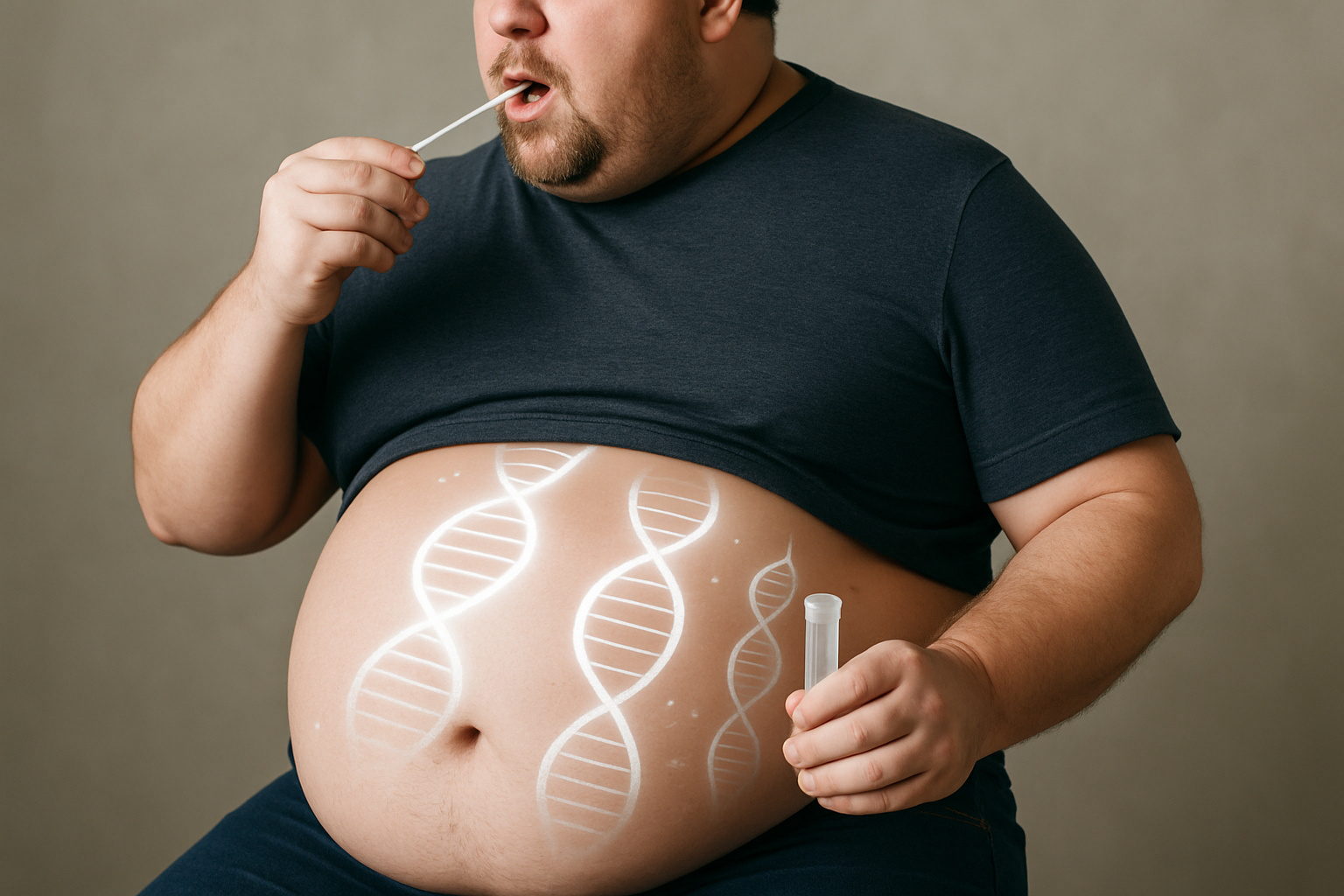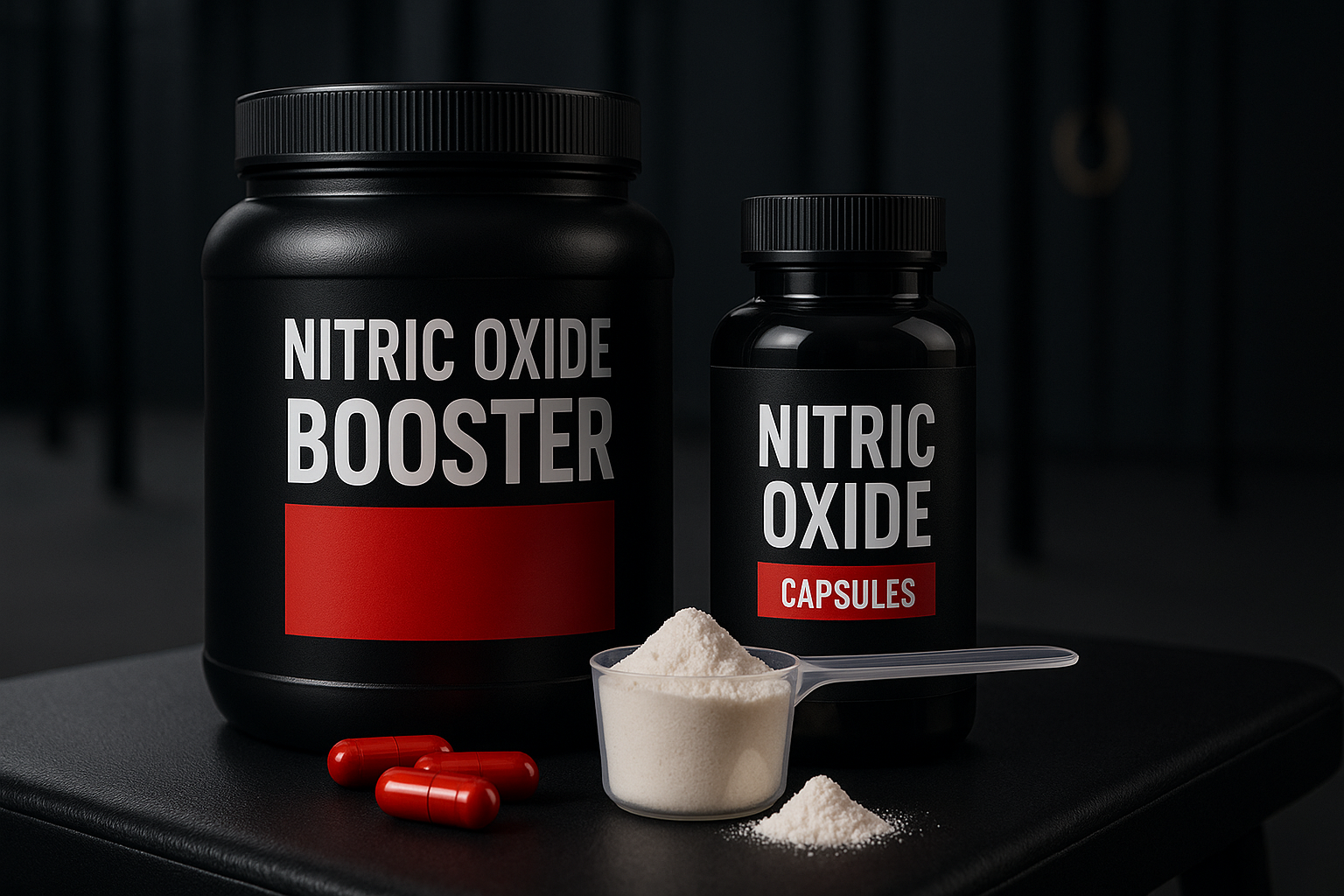The world of nutrition is ever-evolving, with countless diet strategies claiming to promote weight loss, improve health, or boost performance. One diet that consistently sparks both interest and debate is the Ketogenic Diet. Loved by some and questioned by others, the keto diet has carved out a firm place in modern dietary discussions.
But what exactly is the ketogenic diet, and should you consider trying it? In this in-depth guide, we’ll break down the science behind keto, who it’s best suited for, its potential benefits, and its potential risks. We’ll also provide a practical example meal plan to help you get started. By the end, you’ll have a thorough, expert-backed understanding of the keto diet, and how Empowerise can support you in achieving your health and wellness goals.
A Revolution in Diet and Health
Nutrition science has evolved significantly in recent decades. Where low-fat diets once ruled supreme, more recent research underscores that not all fats are created equal, and that certain types of fat may be integral to good health. Similarly, carbohydrate intake has come under scrutiny, with excessive amounts of refined sugars and grains implicated in chronic diseases like type 2 diabetes and obesity.
Amid these shifting perspectives, the ketogenic diet emerged as a somewhat unconventional yet intriguing solution for many individuals. Characterized by high fat, moderate protein, and very low carbohydrate intake, the keto diet aims to shift the body’s primary fuel source from glucose to fat. This strategy has been associated with notable effects on weight management, blood sugar control, and overall metabolic health.
Despite its rising popularity, the ketogenic diet is not without its controversies or potential risks. Some criticize the high fat content; others worry about nutrient deficiencies if not managed properly. As with any diet, individual responses can vary widely, so professional guidance is always recommended. In this blog post, we’ll navigate you through the science, benefits, risks, and real-world application of the ketogenic diet so you can make the most informed decision for your personal health.
What Is the Ketogenic Diet?
At its core, the ketogenic diet is a low-carbohydrate, high-fat eating pattern that aims to induce a metabolic state known as ketosis. Generally, a standard ketogenic diet is broken down as follows:
- Fat: Around 70-80% of daily calories
- Protein: Around 15-20% of daily calories
- Carbohydrates: Typically less than 10% of daily calories (often under 50 grams of net carbs per day)
Many diets decrease calorie intake primarily by reducing fats, but the ketogenic diet does the opposite. By drastically cutting carbs, your body becomes more efficient at burning fat for fuel. At the same time, your liver produces ketone bodies, molecules that can fuel the brain and other organs when glucose is limited.
Historical Roots
Interestingly, the ketogenic diet isn’t a new concept. Medical professionals have used it since the 1920s to help manage certain neurological conditions, particularly epilepsy. More recently, the diet gained fame as a weight-loss strategy, and researchers have begun to explore its effects on a variety of other health conditions, from type 2 diabetes to Alzheimer’s disease.
The Science Behind Ketosis
To understand why the ketogenic diet has such a broad range of potential effects, you need to understand ketosis. Under normal circumstances, the body prefers to use glucose derived from dietary carbohydrates as its main source of energy. When you restrict carbohydrates sufficiently, usually below 50 grams per day, your body starts using stored fat to meet its energy needs.
Ketone Body Production
When fat is broken down in the absence of sufficient carbohydrates, the liver creates ketone bodies, primarily:
- Acetoacetate
- Beta-hydroxybutyrate (BHB)
- Acetone
These ketone bodies can replace glucose as a more stable, long-lasting energy source, especially for the brain. Over time, your cells adapt to burning ketones, and many individuals report increased mental clarity and consistent energy levels once fully “fat-adapted.”
Why Ketosis Matters
- Steady Energy: Since fat stores are abundant even in lean individuals, keto dieters often report more stable energy and less hunger.
- Blood Sugar Management: Reducing carbohydrate intake helps limit blood glucose spikes, potentially improving insulin sensitivity.
- Reduced Cravings: Without the rollercoaster of blood sugar highs and lows, cravings for sugar and snacks may significantly diminish.
For an in-depth scientific look into ketosis, consider reviewing this study.
Key Parameters of the Ketogenic Diet
While the general principle of the keto diet is “low-carb, high-fat,” success often depends on careful planning. Here are the key parameters to keep in mind:
- Carbohydrate Limit
- Aim for under 50 grams of net carbs (total carbs minus fiber) per day, although some people go even lower to reach ketosis more quickly.
- Protein Moderation
- Protein should be moderate, not extremely high. Excess protein can be converted into glucose (a process called gluconeogenesis), potentially hindering ketosis.
- Quality Fats
- Focus on healthy fats such as avocado, olive oil, coconut oil, nuts, and seeds. While saturated fats from animal sources aren’t necessarily off-limits, an over-reliance on processed or poor-quality fats can negatively impact health.
- Electrolyte Management
- When carb intake is drastically reduced, electrolytes (sodium, potassium, magnesium) can become unbalanced. Keto flu symptoms like fatigue, headaches, and irritability often results from low electrolyte levels. Supplementing or choosing mineral-rich foods is crucial.
- Hydration
- Low-carb diets can lead to initial water weight loss. It is vital to drink ample water to stay well-hydrated.
- Adequate Fiber
- Even while restricting carbs, fiber is essential for digestive health. Non-starchy vegetables (like spinach, kale, zucchini, and broccoli) and seeds (such as chia or flax) can help you reach your fiber goals.
Potential Benefits of the Ketogenic Diet
1. Weight Loss
One of the most cited benefits of the ketogenic diet is weight management. By drastically reducing carb intake, insulin levels drop, and the body becomes more efficient at burning stored fat. Several studies indicate that people on a low-carb diet often experience greater short-term weight loss compared to those on low-fat diets. This can be partially attributed to:
- Decreased hunger from stable blood sugar levels
- Increased satiety due to higher fat and protein intake
- Reduced cravings for sugary foods
2. Improved Blood Sugar Control
Individuals with insulin resistance or type 2 diabetes may benefit from adopting a ketogenic diet under medical supervision. By removing most dietary carbohydrates, the body requires less insulin, which can improve blood sugar regulation. Some individuals have even been able to reduce or discontinue certain diabetes medications while closely following a keto regimen, but this should be done under a healthcare provider’s guidance.
3. Enhanced Mental Clarity and Focus
As the brain adapts to using ketones, many dieters report heightened mental clarity and more consistent energy throughout the day. Unlike glucose, which can trigger spikes and crashes, ketones provide a steady source of fuel that may benefit cognitive performance.
4. Potential Cardiovascular Benefits
Although consuming a high-fat diet can raise eyebrows, emerging research suggests that a well-formulated keto diet emphasizing unsaturated fats may positively affect heart health markers. Improvements in HDL (“good”) cholesterol, triglycerides, and possibly blood pressure have been noted in some studies. Nonetheless, monitoring your lipid profile under the guidance of a qualified professional is advisable.
5. Other Emerging Areas
There is growing interest in how the ketogenic diet may impact conditions like Alzheimer’s disease, Parkinson’s disease, polycystic ovary syndrome (PCOS), and cancer (particularly glioblastoma). While preliminary findings are promising in some cases, further large-scale, long-term research is needed to draw definitive conclusions.
The Truth About Rapid Weight Loss: Water Weight and Marketing Gimmicks
One aspect often overlooked by enthusiastic promoters of the ketogenic (or any other low-carb) diet is the nature of the quick weight drop people see in the first week or two. While it can be thrilling to step on the scale and watch the number plummet, the reality is that much of this “rapid weight loss” is primarily water, not body fat.
Why Does Water Weight Come Off First?
Carbohydrates are stored in the muscles and liver in the form of glycogen. Each gram of glycogen is bound to a few grams of water. When you suddenly cut carbs from your diet, your body burns through its glycogen reserves, and in the process, it releases a significant amount of water. This explains the sudden drop in scale weight that many dieters experience in the early phases of keto or other low-carb plans.
Exploiting the “Quick Fix” Mentality
Unfortunately, some marketers use this predictable phenomenon as a “before and after” trick. Photos or ads may highlight jaw-dropping results within a suspiciously short time frame, often implying that it’s mostly fat loss, when in truth, it’s water weight. Such tactics prey on people’s desire for an instant fix, glossing over the fact that sustainable fat loss takes time, consistency, and a comprehensive approach involving balanced nutrition, exercise, and lifestyle habits.
Fat Loss vs. Water Loss
Losing “weight” is not the same as losing fat. True body-fat reduction becomes more apparent after you’ve been on the diet for several weeks (or longer), once the initial water release has stabilized. If you’re looking for real, lasting results, focus on overall trends, like changes in body measurements, strength, and energy levels—rather than a one- or two-week crash in scale numbers.
The Bottom Line
Quick water-weight loss does not equal long-term success, and any claim that “you can lose 10 pounds in 7 days with zero effort” should raise an immediate red flag. While the ketogenic diet can be an effective tool for fat loss, be wary of inflated promises that capitalize on the universal human desire for a fast, easy transformation. Always seek out reputable guidance, and remember that lasting health improvements come from realistic goals and steady progress, not just a sudden dip in the number on the scale.
Potential Risks and Considerations
No diet is perfect or universally applicable, and the ketogenic diet is no exception. It carries unique challenges and potential risks:
- Nutrient Deficiencies
- Eliminating many carbohydrate-containing foods can also eliminate essential nutrients. Individuals who fail to consume enough vegetables and other nutrient-dense foods risk deficiencies in vitamins and minerals.
- Keto Flu
- The transition to ketosis can trigger flu-like symptoms: fatigue, headache, irritability, and muscle cramps. Proper electrolyte and water intake usually helps mitigate these.
- Digestive Issues
- Low carb intake can mean less dietary fiber, leading to constipation or other digestive problems if fiber isn’t carefully included through non-starchy vegetables and seeds.
- Long-Term Sustainability
- Some people find the diet’s restrictive nature challenging to maintain over the long term. This can lead to yo-yo dieting, which may negatively affect metabolic health.
- Elevated LDL Cholesterol
- While some individuals see no negative impact on lipid profiles, others can experience an increase in LDL cholesterol levels. If you have pre-existing heart conditions, it’s essential to consult with your physician.
- Medical Supervision
- Anyone on medication, particularly for diabetes or blood pressure, should follow a ketogenic diet under medical supervision to avoid complications such as hypoglycemia.
Who Is (and Isn’t) a Good Candidate for Keto?
Who Might Benefit
- Individuals Struggling with Weight Loss: If you’ve tried low-fat diets without success, keto may help you break through a plateau.
- Type 2 Diabetics (with Medical Guidance): Controlled carb intake can improve insulin sensitivity.
- People Looking to Improve Metabolic Health: If you have metabolic syndrome or are at risk for it, ketosis may help improve markers like blood glucose and triglycerides.
- Athletes in Endurance Sports: Some endurance athletes have found that being in a fat-adapted state provides a stable energy source during long events.
Who Should Exercise Caution
- Individuals with Type 1 Diabetes: Requires close supervision due to the risk of diabetic ketoacidosis.
- People with Pancreatic or Liver Conditions: These organs are crucial for fat metabolism, so a high-fat diet needs careful oversight.
- Pregnant or Breastfeeding Women: Nutritional demands are higher during pregnancy and lactation; sudden dietary shifts can be risky.
- Those with a History of Eating Disorders: A restrictive diet might exacerbate disordered eating patterns.
Before making any significant dietary changes, you should consult with a healthcare professional. Personalized guidance ensures that any dietary shifts, especially something as major as keto, fit your individual health profile.
Sample Ketogenic Meal Plan
Below is an example 7-day ketogenic meal plan that balances nutrient-dense foods with a focus on healthy fats, moderate protein, and low-carbohydrate vegetables. Adjust portion sizes to your individual calorie needs, and remember to stay hydrated.
Day 1
- Breakfast: Scrambled eggs with spinach and feta cheese
- Lunch: Mixed greens salad with grilled chicken, olive oil, and vinegar dressing
- Dinner: Baked salmon with lemon butter and steamed broccoli
- Snack: Celery sticks with almond butter
Day 2
- Breakfast: Low-carb protein smoothie with unsweetened almond milk, avocado, and spinach
- Lunch: Tuna salad (tuna, mayonnaise, chopped celery) wrapped in romaine lettuce leaves
- Dinner: Zucchini noodles with ground turkey in a tomato-based sauce (look for a low-sugar sauce)
- Snack: A handful of macadamia nuts
Day 3
- Breakfast: Greek yogurt (unsweetened, full-fat) topped with chia seeds and a few raspberries
- Lunch: Chicken breast on a bed of mixed greens with olives, cucumbers, and extra virgin olive oil
- Dinner: Grass-fed steak with garlic butter, served with roasted Brussels sprouts
- Snack: Sliced cucumber with cream cheese
Day 4
- Breakfast: Omelet with mushrooms, bell peppers, and cheddar cheese
- Lunch: Grilled shrimp with spinach, avocado, and lemon-olive oil dressing
- Dinner: Cauliflower crust pizza topped with mozzarella, tomatoes, and spinach
- Snack: Sugar-free beef jerky
Day 5
- Breakfast: Low-carb pancakes (almond flour) with a small pat of butter and sugar-free syrup
- Lunch: Turkey burger in a lettuce wrap with tomato, pickles, and mustard
- Dinner: Creamy garlic chicken with sautéed spinach
- Snack: Olives and a slice of hard cheese
Day 6
- Breakfast: Keto frittata with bacon, spinach, and goat cheese
- Lunch: Smoked salmon with cream cheese, served on cucumber slices
- Dinner: Ground beef (grass-fed) bowl: lettuce, cheese, sour cream, guacamole
- Snack: Sugar-free dark chocolate (in moderation)
Day 7
- Breakfast: Bulletproof coffee (coffee blended with MCT oil and grass-fed butter) and hard-boiled eggs
- Lunch: Collard green wraps with sliced turkey, cheese, and mayo
- Dinner: Coconut milk curry with chicken and cauliflower rice
- Snack: A small handful of mixed nuts
Improve Your Health with Keto & Empowerise
The ketogenic diet offers a compelling approach to weight loss, metabolic health, and potentially even enhanced cognitive function. By drastically reducing carbohydrates, relying on quality fats, and carefully moderating protein intake, many people find that the keto lifestyle promotes greater energy stability and helps them achieve their health goals. However, it’s crucial to recognize the risks, especially nutrient deficiencies and the potential for high LDL cholesterol, which is why medical supervision and individualized planning are essential.
If you’re ready to take your wellness journey to the next level, Empowerise is here to support you every step of the way. Our expertise in transformation coaching, tailored training programs, and genetic tests ensures that you receive a personalized blueprint for success, no guesswork needed. Enroll in our coaching programs to get one-on-one guidance, purchase our specialized training routines to optimize your exercise regimen, and discover how our genetic tests can reveal valuable insights into how your body responds to different foods and exercise modalities.
Your Next Steps
- Explore Our Transformation Coaching: Gain direct access to our coaches who will help you navigate dietary changes, lifestyle adjustments, and more. Link.
- Purchase Our Training Programs: Choose from a range of expertly designed fitness programs that complement a ketogenic lifestyle. Link.
- Take Our Genetic Tests: Uncover genetic markers that may influence your nutritional needs, exercise performance, and overall health. Link.
Your health is an investment, not an expense. Make informed decisions backed by expert guidance and watch how keto—and Empowerise—can help you thrive. For more detailed information, consult reputable sources like Healthline or Mayo Clinic to continue your research.
Embark on your journey with confidence, knowing that Empowerise is committed to helping you realize your best self—every step of the way.






